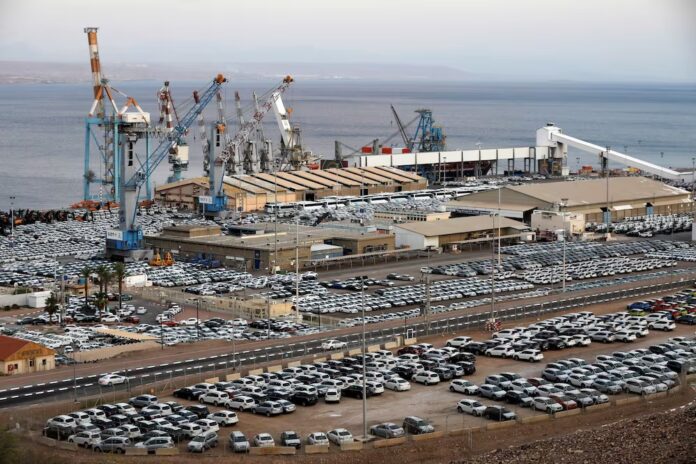In a brazen escalation of tensions, a drone struck a naval base in the southern Israeli city of Eilat early Sunday morning. This marked the first successful strike on the city since the Gaza war began in October.
Although the attack caused no casualties and only minor damage to the building, it underscores the growing security challenges faced by Israel in the region.
The Israeli army reported that a “suspicious aerial target” entered Israeli territory from the east before hitting the naval base in the Eilat Bay area.
Images circulating on social media showed smoke rising from a warehouse adjacent to a small dock regularly used by Israeli Navy Corvettes.
While the incident is still under investigation, speculation has arisen regarding the origin of the drone and the group responsible for the attack.
Initial assessments suggest that the drone may have been launched by an Iraqi militia, as indicated by the Israeli military’s statement that the weapon came from the east, possibly from Jordan.
On Monday, the Islamic Resistance, a coalition of Iraqi militias including Kataib Hezbollah, claimed responsibility for the attack, describing the target as “vital.”
This claim adds a new dimension to the complex web of regional dynamics, linking Iran-backed groups in Iraq to actions against Israel.
Iran-backed militias in Iraq have been increasingly active in recent months, launching drone attacks against Israel under the guise of solidarity with Hamas in the Gaza conflict. Despite these claims, there has been a lack of visual evidence to support their involvement in such attacks.
The use of drones by militant groups poses a significant challenge to regional security. These groups operate from bases in Syria, which have frequently come under air attacks allegedly carried out by the US and Israel.
The Islamic Resistance in Iraq has released videos showcasing drones similar to the Iranian Shahid model, with claimed ranges of up to 2,000 kilometres, putting Eilat within striking distance.
The targeting of Eilat, home to vital energy infrastructure and a strategic naval base, underscores the vulnerability of Israeli assets to asymmetric threats.
As tensions continue to simmer in the region, this incident serves as a stark reminder of the complex geopolitical landscape and the persistent threat posed by militant groups operating in proxy conflicts.
Israeli authorities have vowed to investigate the incident thoroughly and bolster security measures to prevent future attacks. However, the drone strike on Eilat serves as a wake-up call for heightened vigilance and proactive measures to address evolving security challenges in the region.
This article was created using automation and was thoroughly edited and fact-checked by one of our editorial staff members

